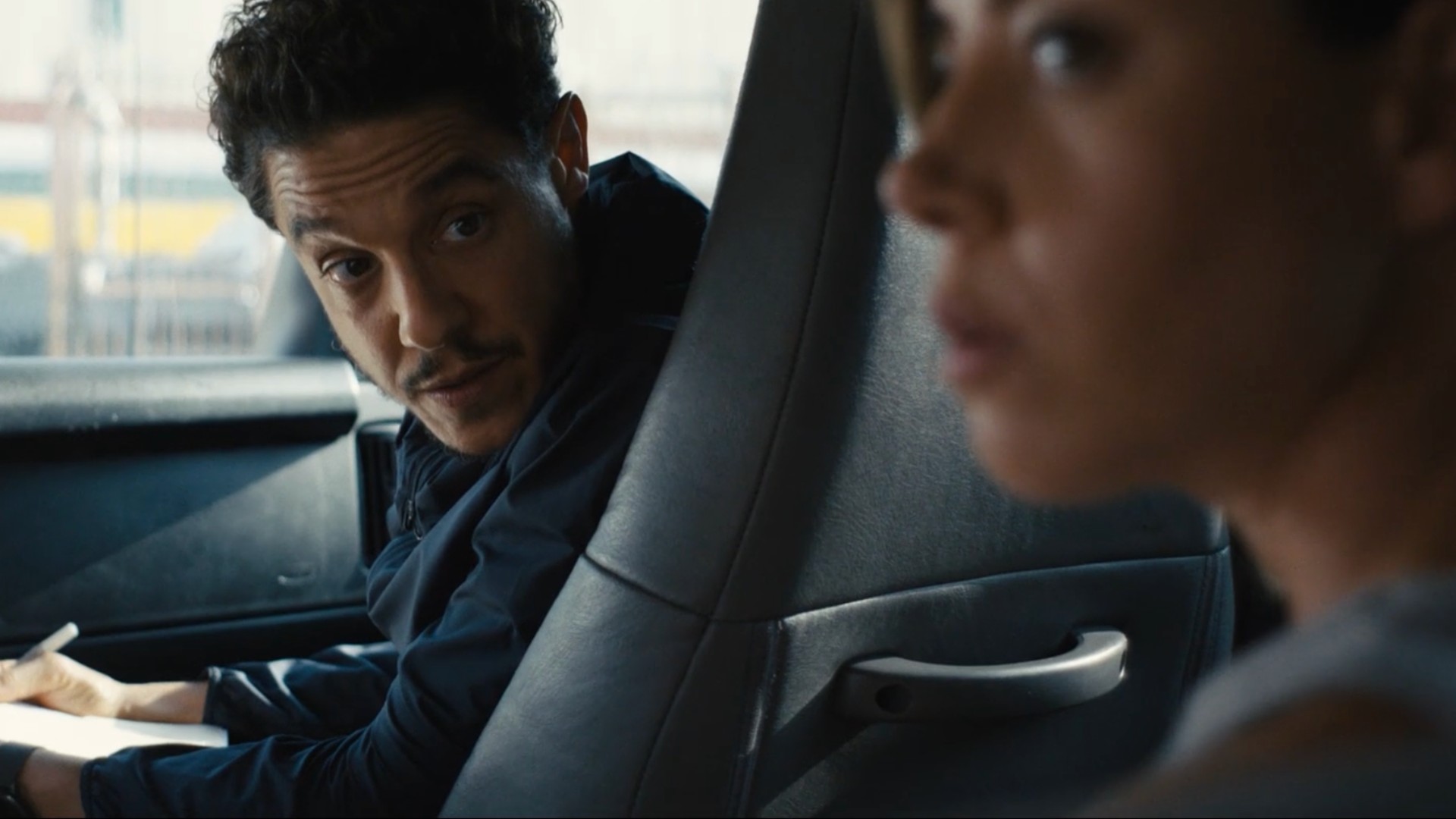
[ad_1]
Crime thrillers like to insist that crime doesn’t pay, which is fairly wealthy, since staying on the straight and slim isn’t precisely profitable both. While so many of those glorified Old Testament cautionary tales posit dollar-signs-over-the-eyes greed because the motive for leaping into the uneven waters of unlawful transgression, anybody simply making an attempt to get by within the rigged system of American capitalism may draw a distinct conclusion. Why play by the foundations when the one solution to win — or perhaps even to survive — is to interrupt them?
That’s the query mulled, early and sometimes, by the title character of Emily the Criminal, a cheap gig-economy noir from writer-director John Patton Ford. Emily (Aubrey Plaza, reliably and beautifully barbed) is a couple of years out of school and buried in $75,000 of pupil debt. Early on, she makes a telephone name to the mortgage workplace to seek out out why a current fee isn’t mirrored on her assertion. Turns out it went totally to the curiosity, not the principal. It’s a scene assured to encourage mass shudders of traumatic recognition from an viewers very accustomed to the Sisyphean ordeal of paying again predatory lenders.
Aubrey Plaza spikes her signature hostility with a sympathetic weariness.
Emily, a graphic designer by coaching however not commerce, has a few felonies on her file — youthful errors that introduced her time at college to an in depth and left her largely unhirable. To make ends meet, she works lengthy hours for little pay as an impartial contractor at a catering firm. Plaza has performed greater than her share of robust, testy, take-no-shit prospects, however right here she spikes her signature hostility with a sympathetic weariness: Facing a future dimmed by insurmountable monetary obligation, Emily has hardened right into a traditional Aubrey Plaza antiheroine, with no financial savings and even fewer fucks left to offer.

In reality, so slim are Emily’s occupational prospects that when a coworker ideas her off to a possibility to make a fast, tax-free $200, she barely hesitates to observe the lead. This is her induction into the lawless world of “dummy shopping,” a rip-off that entails utilizing stolen bank card info to buy costly objects from shops to allow them to then be flipped on the road. The operation is run by the cool-headed Youcef (Theo Rossi), who doesn’t a lot seduce Emily into a lifetime of crime as gently open the door to it. And can we blame her for stepping by means of? Youcef’s scheme is principally a shadow model of her “legit” impartial contractor work; she has no protections on this area both, however the hours are extra versatile and the charges a lot better.
Ford lends this petty outlaw milieu an interesting neorealism, each within the small-potatoes scale of the crimes being dedicated and within the observational bob of his handheld digicam, which trails Emily by means of the ins and outs of a strip-mall empire of larceny and id theft. The movie flirts with a Scorsesian procedural curiosity, however there aren’t many conspiratorial particulars to obsess over right here — the mechanics of Youcef’s organized crime are nearly comically easy and uncomplicated. They do, nonetheless, lend themselves to some crackerjack suspense sequences, just like the second the place Emily has to finish the acquisition of a sports activities automotive and get away within the mere eight minutes earlier than her bank card comes up as stolen, or the harrowing dwelling invasion she invitations when agreeing to satisfy some consumers too near her condo.
Emily’s traipse into lawbreaking has the specificity and the mundanity of a narrative yanked from the headlines.
Outdated flip telephones situate Emily the Criminal in an unspecified current previous — only one component that offers the movie the deceptive vibe of true crime, when in actual fact it’s a completely fictional concoction. Seriously, it’s nearly onerous to imagine all of this isn’t tailored from {a magazine} article. Emily’s traipse into lawbreaking has the specificity and the mundanity of a narrative yanked from the headlines. It additionally, sadly, slides in its second half into the form of generically “urgent” melodrama screenwriters will typically impose on fascinating real-world occasions that don’t require it. Emily’s eventual romance with Youcef and the story’s final tilt into backstabbing and violence really feel synthetic compared to Ford’s extra convincing, low-to-the-ground depiction of somebody pulled inexorably right into a slightly unglamorous legal enterprise.
Veneer of grittiness apart, Emily the Criminal is in the end one thing of a fantasy, shrewdly focused at a postgraduate workforce crushed by debt, a bleak job market, and the sucker wager of tethering your future to employers who see you as nothing greater than low cost, expendable labor. It is, in different phrases, a caper for our age of late-stage capitalism, freed from any moralistic hand-wringing concerning the true price of crime. And in Plaza, it finds the perfect microphone for the outrage it’s channeling. Her livid outbursts throughout a pair of bookending job interviews are greater than relatable. They’re principally the lament of a era choking on false guarantees, and prepared for the determined measures referred to as for by our determined occasions.
Emily the Criminal is now taking part in in choose theaters. For extra of A.A. Dowd’s writing, please go to his Authory web page.
Editors’ Recommendations
[ad_2]